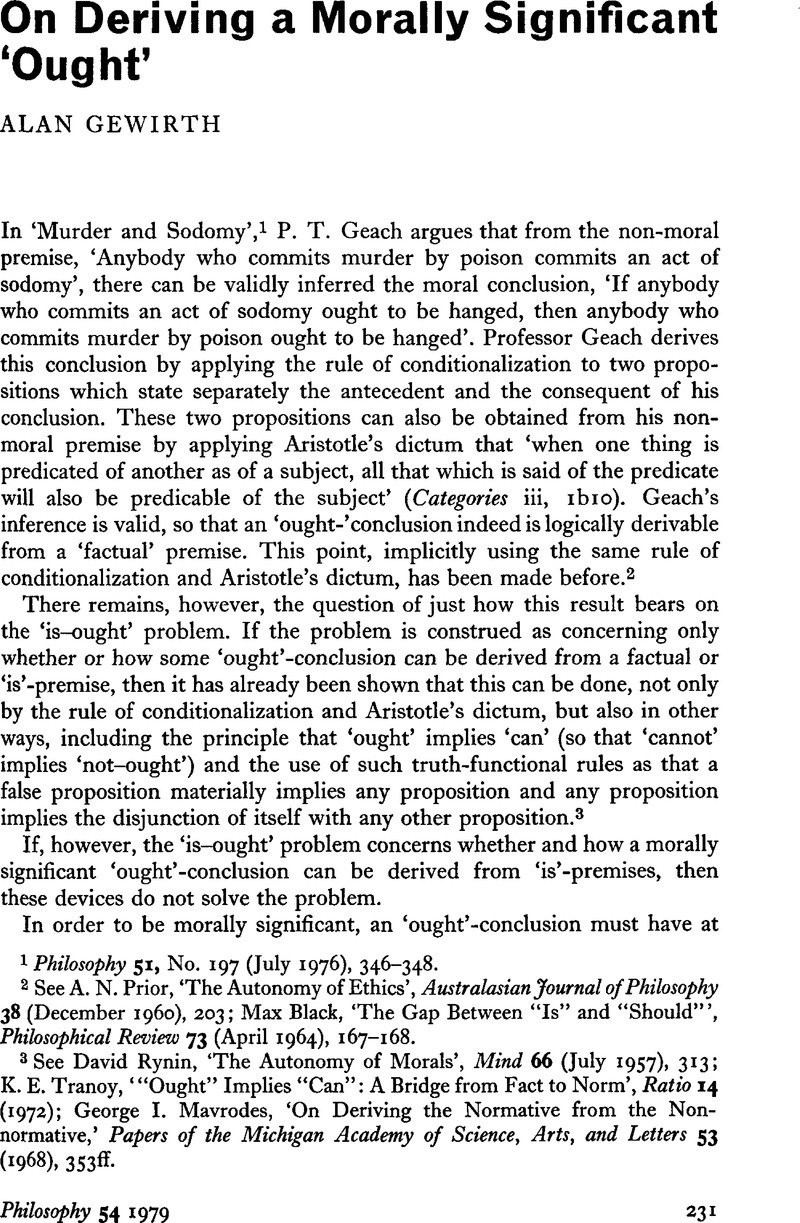Article contents
On Deriving a Morally Significant ‘Ought’
Published online by Cambridge University Press: 30 January 2009
Abstract

- Type
- Discussion
- Information
- Copyright
- Copyright © The Royal Institute of Philosophy 1979
References
1 Philosophy 51, No. 197 (07 1976), 346–348.Google Scholar
2 See Prior, A. N., ‘The Autonomy of Ethics’, Australasian Journal of Philosophy 38 (12 1960), 203CrossRefGoogle Scholar; Black, Max, ‘The Gap Between “Is” and “Should”’, Philosophical Review 73 (04 1964), 167–168.CrossRefGoogle Scholar
3 See Rynin, David, ‘The Autonomy of Morals’, Mind 66 (07 1957), 313Google Scholar; Tranoy, K. E., ‘“Ought” Implies “Can”: A Bridge from Fact to Norm’, Ratio 14 (1972)Google Scholar; Mavrodes, George I., ‘On Deriving the Normative from the Non-normative,’ Papers of the Michigan Academy of Science, Arts, and Letters 53 (1968), 353ff.Google Scholar
4 Gewirth, Alan, ‘The “Is-Ought” Problem Resolved’, Proceedings and Addresses of the American Philosophical Association 47 (1974), 34–61.CrossRefGoogle Scholar
- 1
- Cited by




